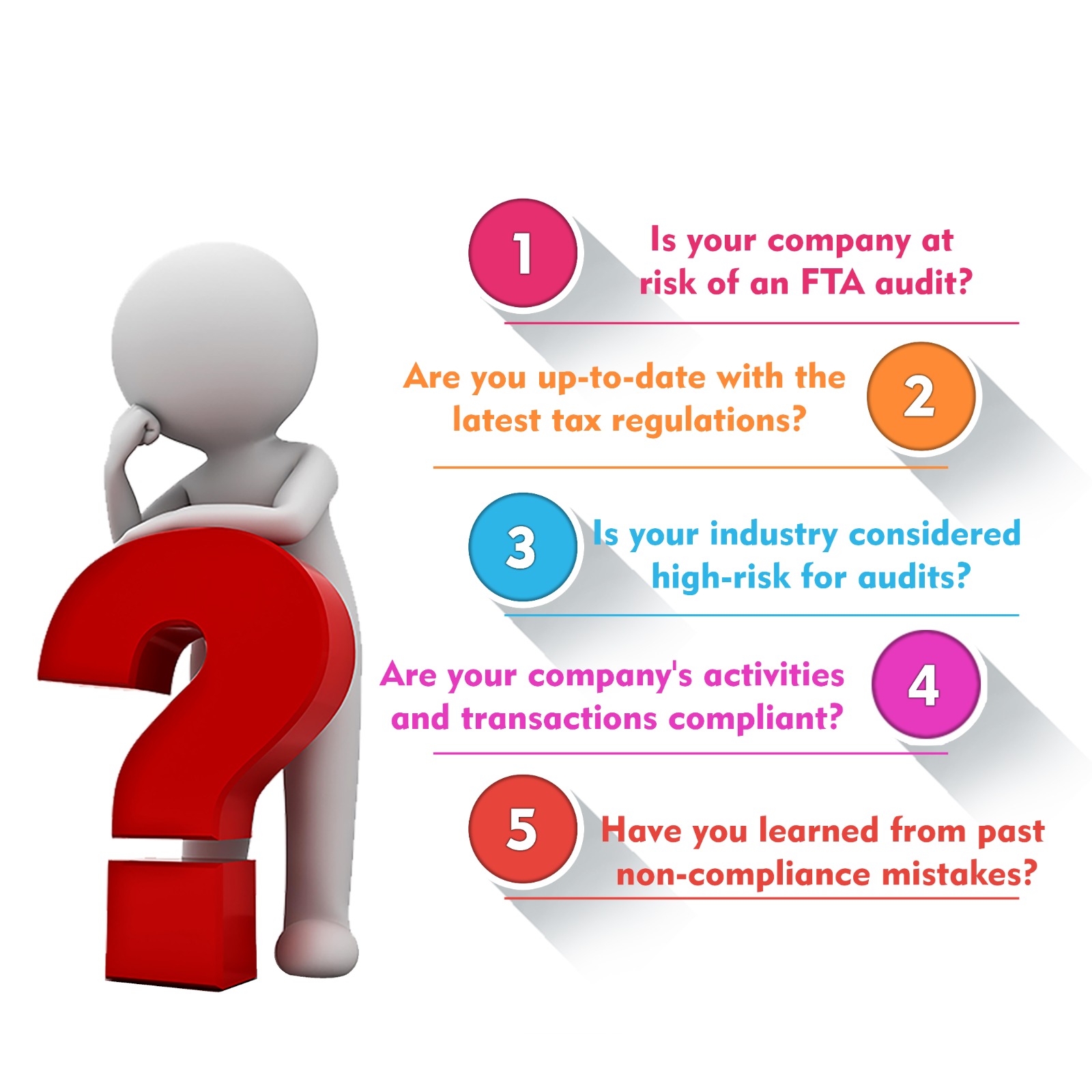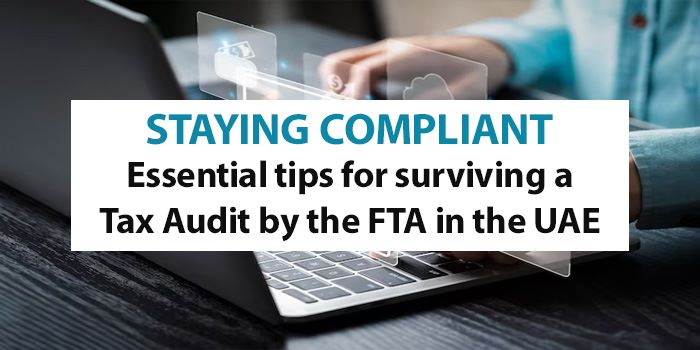Stay ahead of the game with our tax audit tips for businesses in the UAE! Don’t wait for the Federal Tax Authority (FTA) to come knocking – ensure your financial information, accounting records, and VAT returns are accurate and up-to-date.
The Federal Tax Authority (FTA) in the UAE conducts tax audits by thoroughly examining a company’s financial information, accounting records, and VAT return filings to verify that their tax liability has been correctly assessed and reported, and that they comply with applicable laws, regulations, and other obligations. Without requiring a specific cause, the FTA may conduct an audit based on specific criteria at any time. All businesses operating in the UAE are advised to prepare themselves as the FTA allows only five days to respond to queries. To ensure compliance, businesses must accurately determine their tax positions for standard-rated, zero-rated, and out-of-scope transactions. They must also ensure that their financial data is complete and accurate up to the period for which VAT returns have been filed, maintain proper reconciliations of VAT returns with the appropriate ledgers and custom records, and keep all supporting documents and custom records up-to-date.
Why is a Tax Audit done by The FTA?
Stay compliant and avoid penalties with our expert tax audit tips for businesses in the UAE!

The Federal Tax Authority (FTA) conducts audits to ensure that firms are following VAT and Excise Tax rules and regulations, whether randomly or due to suspected noncompliance or fraudulent activities. During an FTA audit, the authority will thoroughly examine a company’s records, financial statements, and other essential documents to verify that taxes have been correctly computed, declared, and paid.
- Random selection: Companies may be selected for an FTA audit on a random basis, as part of routine compliance checks. This means that even if a company has been compliant in the past, it is still subject to audit.
- Non-compliance: If a company is suspected of not complying with tax laws and regulations, the FTA may initiate an audit to verify that the company is accurately reporting and paying their taxes. It is essential for companies to stay up-to-date with the latest tax regulations to avoid any non-compliance issues.
- High-risk industries: Certain industries, such as construction, real estate, and retail, are considered high-risk and may be subject to audits. Companies operating in these industries should take extra precautions to ensure they are fully compliant with tax laws and regulations.
- Unusual activities: Companies engaging in unusual activities or transactions may be subject to an FTA audit. It is crucial to maintain accurate and comprehensive records to ensure all activities are compliant with tax laws and regulations.
- Past non-compliance: Companies with a history of non-compliance may be audited to ensure they are now in compliance with tax laws and regulations. It is important to learn from past mistakes and take the necessary steps to avoid any future non-compliance issues.
To avoid potential penalties and legal consequences, it is essential for companies to maintain accurate and comprehensive records and comply with all tax requirements at all times.
Tax Audit Procedures
- The Federal Tax Authority (FTA) may use risk-based selection criteria to determine which taxpayers to audit.
- The tax audit may be conducted at the FTA office, the taxpayer’s premises, or any other location where business is conducted.
- If the tax audit is to be conducted at the taxpayer’s premises, the FTA must notify the taxpayer at least five business days in advance.
- The tax auditor has the authority to temporarily close the taxpayer’s business for up to 72 hours, with prior notice, in the following situations:
( I ) If there are serious grounds to believe that the taxpayer is involved in tax evasion.
(II) If not temporarily closing the business will hinder the tax audit. - The tax auditor must obtain prior written consent from the Director-General (DG) before closing the business.
- If the tax auditor needs to visit a residence, permission from a public prosecutor is required.
- If the closure of the business needs to be extended beyond 72 hours, approval from a public prosecutor is required.
- Criminal cases can only be initiated upon an application from the Director-General (DG).
Once a tax audit is initiated, the business being audited must provide all the requested information in the format specified by the FTA. Unlike VAT returns, which provide a summary of transactions such as sales, purchases, input VAT, and output VAT, the FTA requires detailed information at the invoice level for tax audits. Even though VAT is a familiar concept to companies in the UAE, there is a high likelihood of being audited by the FTA. The Federal Law on Taxation empowers the FTA to conduct tax audits on any individual or entity to ensure compliance with applicable laws.
In the UAE, a tax audit carried out by the FTA involves a comprehensive examination of a company’s financial data, accounting records, and VAT return filings to verify their compliance with relevant laws and regulations, accurately assess and report their tax liability, and fulfill other obligations. The FTA has the authority to conduct audits on businesses for any reason, based on a set of criteria, without requiring a specific cause. To prepare for a potential audit, UAE businesses should be able to respond to queries within five days. They should also correctly determine tax positions for standard-rated, zero-rated, and out-of-scope transactions, accurately record financial data in their systems up to the period for which VAT returns have been filed, and maintain proper reconciliations of VAT returns with respective ledgers from their books of accounts and customs.
Staying compliant with tax regulations is crucial for businesses in the UAE to avoid penalties and legal consequences. By following our expert tax audit tips and maintaining accurate and comprehensive records, companies can prepare for a potential audit by the Federal Tax Authority (FTA). Whether selected randomly or due to suspected non-compliance or unusual activities, being prepared can make all the difference in surviving a tax audit.
Don’t wait for the FTA to come knocking – take action now to ensure your business stays compliant and ahead of the game!
To stay update with latest tax regulations follow our website: www.elevateauditing.com

